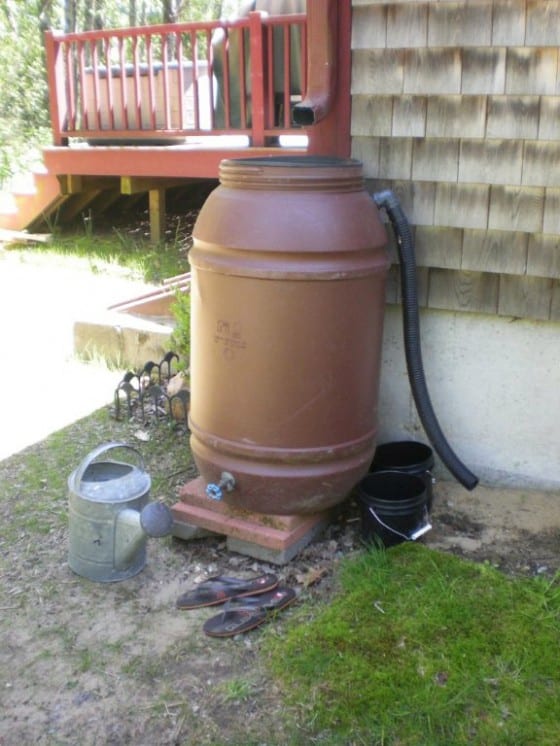Gardening in New England | Top 5 Tips
Tips to make Gardening More Effective, Enjoyable and Environmentally Friendly Garden blogger, Shelley Wigglesworth, shares her top 5 tips for gardening. 1. Invest in good tools gradually (one or two a year) and take care of them. Gradually accumulate quality garden tools and take proper care of them. My top five tool picks to acquire […]

Rain Barrel
Photo Credit : Shelley WigglesworthTips to make Gardening More Effective, Enjoyable and Environmentally Friendly
Garden blogger, Shelley Wigglesworth, shares her top 5 tips for gardening.1. Invest in good tools gradually (one or two a year) and take care of them. Gradually accumulate quality garden tools and take proper care of them. My top five tool picks to acquire first are: A medium sized garden shovel, hand trowel, pruner, garden fork and a wheelbarrow. These basic pieces of equipment will be frequently used for most gardening projects. Keep your tools in excellent working order by thoroughly cleaning and inspecting tools at the beginning and end of the growing season. Tighten screws, oil wheels and crevices and provide any other needed maintenance during these times. It is also important to properly store tools in a potting shed or other sheltered area when not in use. 2. Use a rain barrel A rain barrel is a seasonal, outside container system that collects and stores rainwater that would otherwise be lost or diverted to storm drains. The collected rainwater is stored and saved for future gardening use. Rainwater is “soft water” that contains no chlorine, lime or calcium; therefore, providing a healthier alternative to tap water for plants. According to the United States Environmental Protection Agency, forty percent of total household water used during the months of June, July and August is from lawn and garden watering. A rain barrel is one way to decrease that estimate—or possibly eliminate it all together.
Photo Credit : Shelley Wigglesworth
Shelley Wigglesworth
Shelley (Fleming) Wigglesworth is an award-winning freelance journalist from Maine and a certified Maine Master Gardener who writes gardening articles on a regular basis for NewEngland.com. Her work can be found in the following publications: The Village Magazine, York County Coast Star, Yankee Magazine (online), National Fisherman Magazine, Commercial Fisheries News, Points East Magazine, Coastal Angler Magazine and The Maine Lobstermen's Association's "Landings."
More by Shelley Wigglesworth

